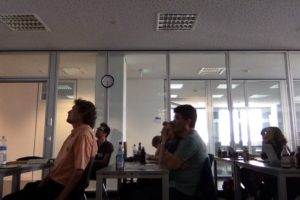
This workshop held July 9 to 11, 2018, focused on methods that leverage localized, numeric atom-centered orbital (NAO) basis functions, a choice upon which a number of the strongest available electronic structure developments are founded. The workshop brought together key players from the FHI-aims code and related European and international efforts to highlight, discuss, and advance the state of the art of NAO-based modeling of molecules and materials based on the first principles of quantum mechanics. This workshop covered three days and 23 invited talks, covering:
- development of community-based, shared infrastructure projects for electronic structure theory (Garcia, Larsen, Pouillon),
- benchmarking efforts to assess and improve the accuracy of approximations used in electronic structure theory (Al-Hamdani, Goedecker, Liu),
- applications of density functional perturbation theory (Laasner, Raimbault, Shang),
- automation of workflow via machine learning and “big data” efforts (Ghiringhelli, Hoja),
- scalability towards large systems and exascale computational resources (Huhn, Scheurer, Yu),
- numerical algorithms and new methods for NAO-based electronic structure theory (Hermann, Ringe, Rossi), and
- extensions beyond standard Kohn-Sham DFT (Golze, Havu, Michelitsch, Oberhofer, Ren)

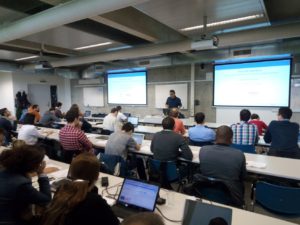
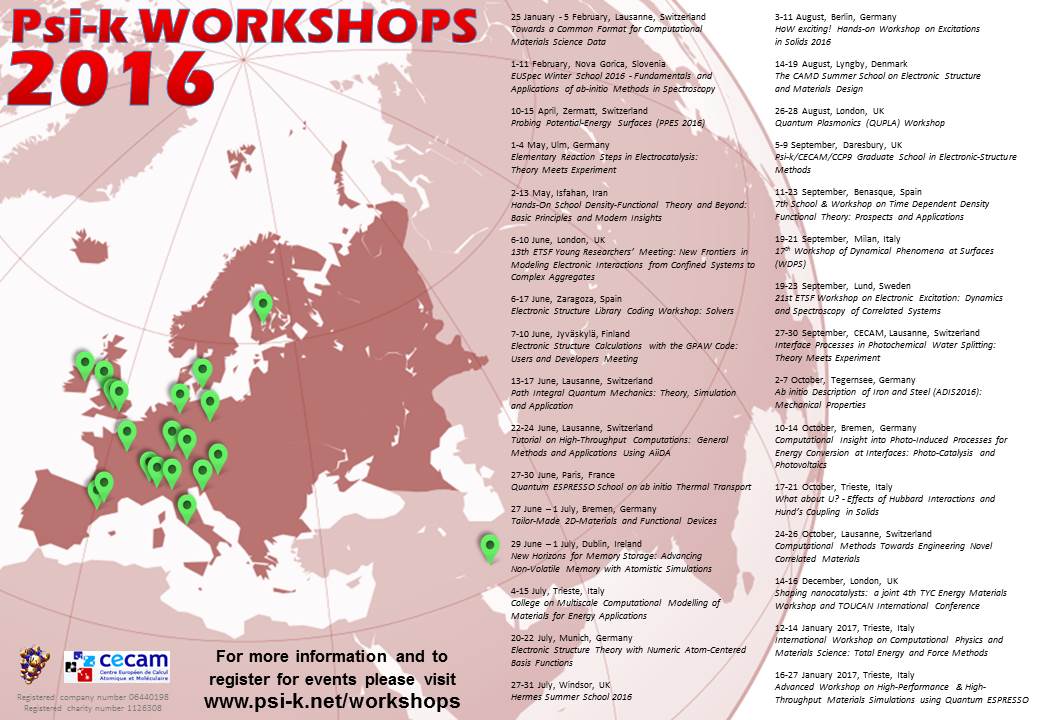

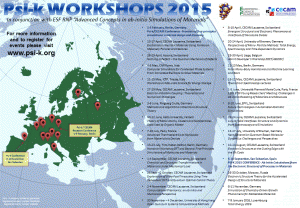
During the DPG Condensed Matter Meeting in Regensburg the Psi-k Network will organize again a Psi-k Scientific Get-Together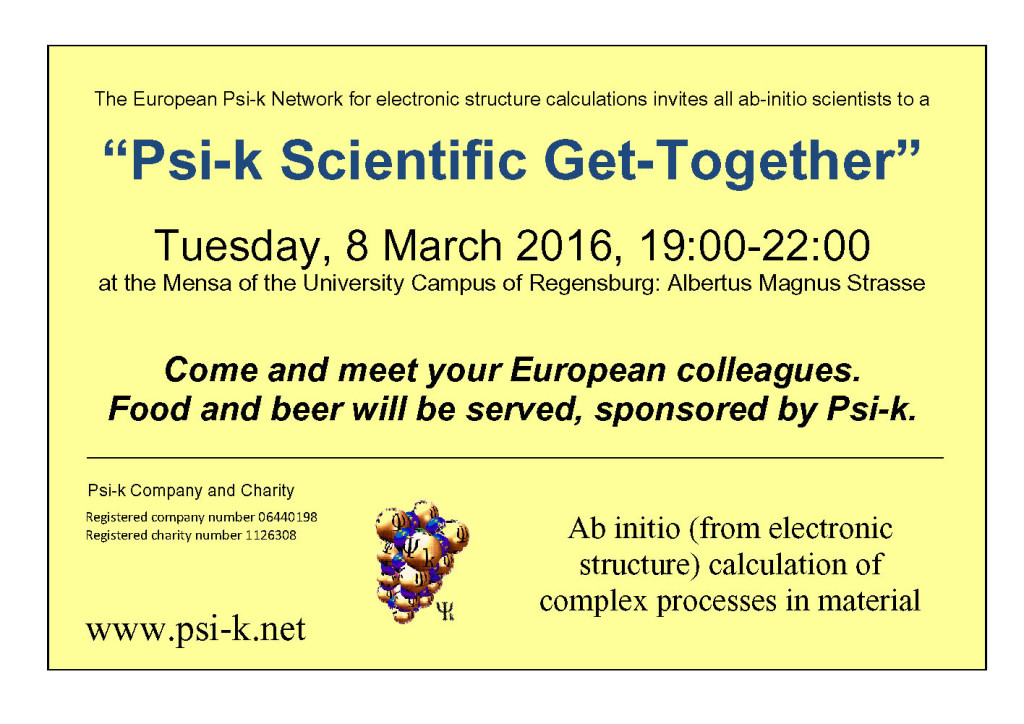
We hope that you can come to the meeting and that we have a nice Get-Together. Please distribute the attached flyer to your colleagues and coworkers.
See you in Regensburg
Peter Dederichs
Honorary Chairman